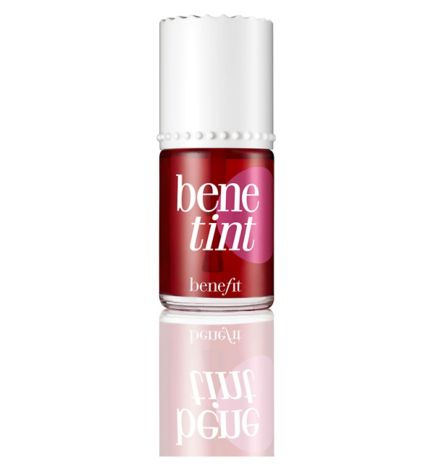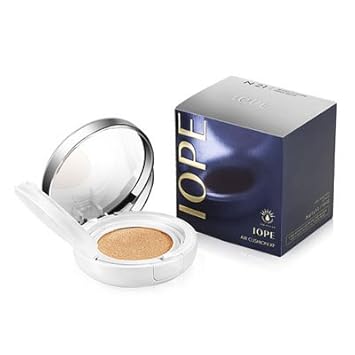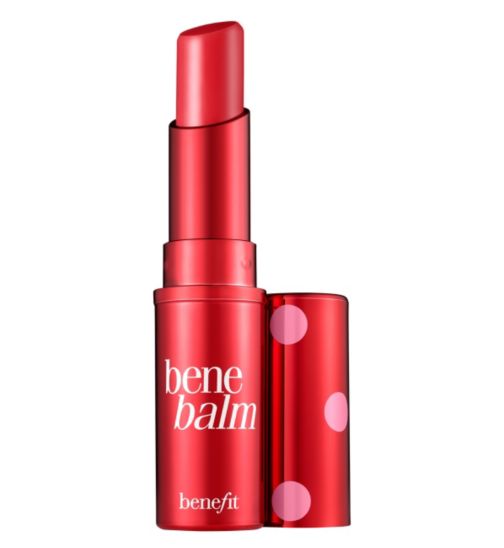I write this with a heavy heart. No dot points, a bit all over the place, but that is how these things go. If you’ve ever experienced pregnancy or loved one loss, don’t read this. You don’t need to. You know it all already and you should live your life and not relive your losses.
A few years ago I became a medical registrar. In my state, you become a registrar 3 years out of medical school. In some other states, that third year is a quasi resident-registrar year in which some jobs you’re a reg and in others you’re still doing discharge summaries. But in my state, you’re sent to a regional or rural site to ‘break you in’. Three weeks after being a paper-pushing resident, I was the medical registrar for the hospital at night. All medical admissions had to be seen by me. All sick patients on the wards, seen by me. And in a curiosity I think specific to my network, there was no week off after nights. You would show up to your 8-5 day job, on Monday, work until Thursday, then on Friday, try to sleep during the day, and start nights. You then did 7 12 hour nights, finish the following Friday, have two days off, then return to your 8-5 day job. 2 days off in 3 weeks, to give you an idea of the workload.
In medicine, as a resident or registrar, you don’t sit. When the boss rounds, you always offer them the chair when there is a chair (not often). You don’t have your own desk or phone, there are desks and phones but they’re usually shared between you, the nurses, the physios, the occupational therapists, the pharmacist, the social workers and everyone else who needs it. Of course it depends on how well funded your hospital is, sometimes the doctors might get a cupboard with a lone computer in it but it’s rare. You don’t sit, you stand and walk and stand and walk. Sometimes when you’re tired you perch on the end of the patient’s bed. As an intern your feet hurt all the time but it goes away eventually. You see your patients, you come up with a list of things that needs to be done for them (a management plan), always with the goal of getting them home safely. The list includes tests you need to do to confirm your suspected diagnosis and any new ones that usually come up, other services who need to see the patient who need to be called, and starting/stopping/adjusting medications. You do this for everyone. You admit patients, by writing up their history, examination, and a management plan. Am I procrastinating telling my story enough?
My husband and I had been trying for a baby for the last six months of residency but nothing had happened and we decided to take a break. I was starting a new job in a new hospital, and besides, it’s not like we’d be living together anyway – he had a job in the city and I had to work a couple of hours drive away, and frequently on weekends. The new job hit me like a ton of bricks. At first it was alright, I had a supportive group of consultants, but I was a fish well out of water. And then, I rotated. You rotate every 3 months in your early years. Every 3 months, new job. New bosses, new juniors, new allied health, new systems, new patients, new fridge to put your lunch in. It’s exciting and intermittently dizzying. I rotated into the hardest job I’ve ever had in medicine. 3 months out residency and suddenly I was on-call, every 3 weeks for one week.
On-call in this job meant, that from 8am Wednesday to 8am Wednesday, anyone, from the 4 hospitals in the area, laboratories, GP’s, and sometimes patients, could call me. They would call me about sick inpatients and sick outpatients and did I want them admitted, they would call me to come in and see people they were worried about, the labs would call me about patients with terrifying lab results who weren’t my patients but were known to our service, resulting in me scrambling to figure out who the hell they were and where I could find them in a very large geographical area. This was in addition to my day-job, where I had 30 patients, and 20 consults daily, which I usually managed to finish at 8pm on a good day. The calls would come at dinner time, 2am, 3am, 5am, any time really and at any of those times, I had to go into the hospital if required. Even if I had been in the hospital for a couple of hours since 2am, I had to be there at 8am, ready to go. On the Saturday and Sunday, I would round on any patients under the service who were sick, and any consults that were sick, and any new consults. On the following Wednesday, I would turn off my phone at night with relief.
It’s really boring to complain about how busy your job is, especially in this job. Everyone has a more hardcore story than you. Some wear it as a badge of honour ‘if you’re not working your guts out, you’re not working’ sort of mentality. That’s medicine. I didn’t write all that to complain about it – that term freaking made me, but I wanted to set the scene.
A couple of weeks into that term, I discovered I was about 5 weeks pregnant. We’d stopped trying trying but weren’t actively not trying. And what should have been happy news filled me with terror. For some reason, the medical workforce had put me on my own in a dodgy flat in a dodgy part of town. I had no idea how I was going to do this job and be pregnant. No one I knew had kids. My family were all interstate. I’d worked so hard to get a coveted job in this network, and now I was letting them down. How dare I? They didn’t have to hire me but they did, when it was so competitive. Would they think I didn’t take the job seriously?
At the same time, I was being bullied by a more senior colleague. I can’t go into detail because it ended blowing up to something far greater than myself and I was told by administration I was not allowed to disclose any of it. To anyone. Not even my supervisors. I wouldn’t talk about it here anyway as it’s far too identifying but needless to say, this dragged me down into the deepest of holes, pregnancy aside. Adding first trimester fatigue, hormonal changes, nausea into that mix, along with the on-call, was a recipe for disaster. I started withdrawing. I didn’t see it at the time, but I stopped going online as much, talking to my friends and family as much. I’d go home and turn on the TV and pretend none of this was happening, alone in that dodgy little apartment. I swallowed Maxalon, showed up to work, did those hours, put up with the bullying, didn’t go to the bathroom, didn’t drink any water, and pretended everything was completely normal.
Two weeks later, my aunty died. She was a driving force in my life, a second mother when my own had to work, being a single parent. Her acerbic brand of humour, rampant feminism, and menthol cigarettes touched my life in more ways than I could ever count. She was only in her late fifties and the cigarettes had given her lung cancer. She’d gone into hospital for something unrelated and died suddenly of a cancer complication. Nothing is ever really sudden in stage 4 cancer, but it wasn’t the slower deterioration I was used to. I flew interstate to her funeral which was a mistake, as much as I loved her. I finished my on-call, drove the two hours back to the city, got on a plane, went to the funeral, flew back the next morning and drove the two hours straight to work from the airport. I was exhausted and it was a stupid thing to do. She would have been horrified.. And I kept going on at work. Getting bullied. Being pregnant and telling no one, sick to my guts, so fatigued I could hardly see, withdrawing from everyone.
And then I started bleeding.
There is nothing in the world like that moment in the early pregnancy assessment clinic, when they send you to the ultrasound and you look up at the screen and see that little, unmoving circle. I was 11.5 weeks when it happened. You don’t need to hear the sonographer say ‘no heartbeat’, you can see it. Everything just stops and zooms right onto that awful, little moment, in that tiny little room. I stopped. My mind stopped. My husband’s head was in his hands.
Afterwards I disappeared into a hole. I don’t have a lot of words to describe that time. For the rest of the year I was a zombie. I stopped talking to everyone, I couldn’t speak, I couldn’t compute. I’m incredibly lucky I have the most incredible friends in the world who didn’t let me drown. Even when I didn’t speak, they didn’t let go. Flowers arrived. A little gift here, a kind word there. These were the protective threads that without even knowing, I held onto, that carried me through. I hard deleted my Facebook account which is surprisingly difficult, (it’s not the same as closing it!), and just turned off the Internet. I didn’t want the conversations of normal life, of the flow of life, when mine had stopped. I showed up to work. I suffered through that fucking term. It didn’t matter anymore how hard I was working because there was nothing left to lose. My hair fell out. My husband and I entered a strange place, that place where you lose your innocence about pregnancy, where you lose the ideal that to be successful you work your guts out. Something broke in us both. I can barely remember the rest of that year. I remember trying to study for the exam but staring at the wall. By the time the written exam had rolled around, the damage was done. I failed it by 4 points.
I will never know if that miscarriage was due to all of those incredible stressors. 1 in 4 pregnancies end in miscarriage, and someone told me at the time that it’s exceptionally hard when it’s the first pregnancy that is lost. In hindsight though, knowing what I know now, I would never, ever, have let the job run me down like that, as a pregnant woman. All of the lessons I wrote about in Part 1 were learned in that black hole of a year and oh, if I had my time again! So if you’re reading this, don’t despair, go back and read Part 1 because it really can be okay if you prioritise yourself and your baby above everything including the job. It’s a hard change to make, especially in medicine, where you are the last priority, but you just have to do it. I lost so much that year, and it has taken me years to rebuild.
And so I don’t leave you feeling sad, here is the epilogue to that story. On the day I found out I had failed the exam, between my tears I also was lucky enough to be telling people I was 12 weeks pregnant, scan confirmed. And everyone in my network was elated for me (a pleasant surprise!) And although there were more lessons to be learned (like, do not let your employer put you on those shitty set of nights where you get 2 days off in 3 weeks, in the last trimester), it was nothing like the year before. And when my daughter was finally born, my whole world opened up again and because of what had happened, she was more adored and loved than any baby on this planet and always will be. I sailed through the written exam on the next go, 25 points clear of the pass mark, and then passed the clinical first-go too (which is a whole other excruciating story). Because in the end, this too shall pass, and it really really did.
If you’re reading this, and have guessed who I am through this somewhat identifying story, please respect my anonymity. I write this because I hope I can help others in that hole, who are in a unique situation, but I cannot continue to write without the safety of that anonymity. Thankyou for reading.














